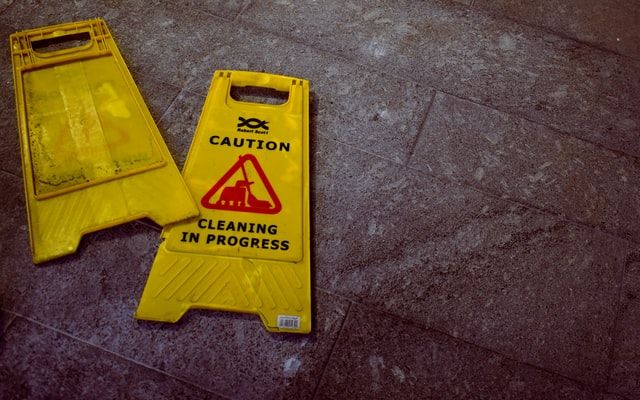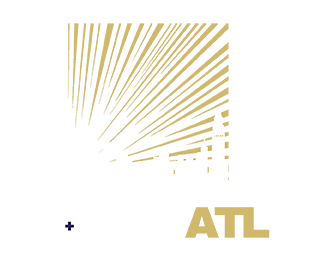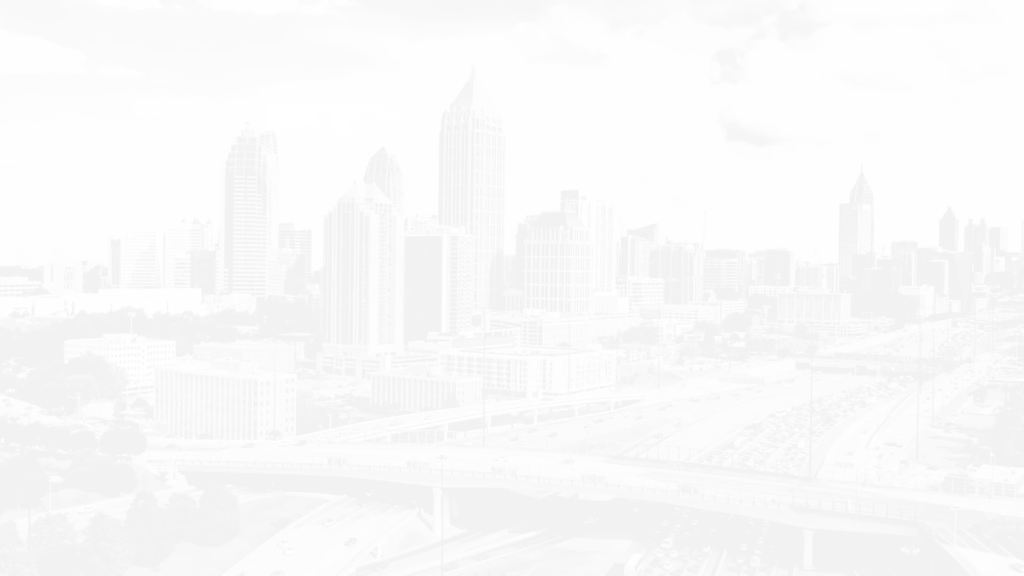The first question we want to get out of the way and discuss in more…

In the state of Georgia, premises liability law states that property owners and those in control of a property are responsible for any injuries that occur on their property. This means that if you are injured on someone else's property, that person or business may be liable for your injuries. If you have been injured in an accident and are unsure of your legal rights, it is important to speak with an experienced personal injury attorney.
As we look at Georgia premises liability law, we're going to explore many different aspects of it including:
- Proving negligence
- Gathering evidence to prove negligence in a Georgia premises liability law case
- What injuries are covered by Georgia's premises liability laws
- Difference between premises liability and negligence
If you find yourself dealing with a premises liability case, we'll also take a look at how a liability lawyer can help you with premises liability cases.
What Is Premises Liability Law in Georgia?
When you hear the term premises liability, it covers a wide range of issues including slip and fall accidents to negligent security. Issues arise when an injury occurs at a business or another property.
A property owner in Georgia has certain responsibilities to guests and others who are on their property. But this can get confusing because the case can depend on the relationship between the injured party and the owner or occupier of the area where the injury occurs. The nature of the hazard that causes the injury can also impact the outcome.
Georgia Premises Liability Elements
Any of the following may find themselves facing premises liability lawsuits:
- Retailers
- Homeowners
- Landlords
- Property managers
- Government entity
- Apartment complex owners
Basically, any owner or occupier who fails to keep their premises safe may be held responsible.
Several things can make for unsafe conditions at a home or business. These include:
- Building code violations
- Malfunctioning elevators
- Poor maintenance
- Slippery floors
- Cracked or uneven sidewalks and pavement
- Unmarked hazardous or dangerous areas
- Naturally occurring hazards
Victims can hold a property owner liable for negligently causing unsafe conditions. If a business owner or property owner negligently fails to repair or warn others of the dangers at the property may also result in liability. Also, if they did not exercise ordinary care, a lawsuit may arise.
Proving Negligence In Premises Liability Claims
When it comes to proving negligence in Georgia premises liability cases, much attention is focused on whether the injured party was invited, a licensee, or a trespasser.
The highest duty of care is owed to those who were invited to the property. Property owners should exercise ordinary care and owes their invitees this to keep the property safe.
Licensees are not invited to the property, but their presence is allowed. Under Georgia law, the duty owed to licensees is less compared to invitees. The property owner must avoid recklessly injuring the licensee with a hazardous condition.
Trespassers are owed the lowest duty of care. The trespasser has not been invited and does not have permission to be on the property. A child trespasser is typically treated as a licensee. Also, legitimate visitors to a property are not likely considered to be trespassers.
Victims Proving Liability for an Injury
1. There Was a Duty of Care
Victims can prove fault in premises liability cases by showing the owner knew about the hazardous condition and did not address it. The responsibility may be linked to the owner or their agents.
The victim can also prove constructive knowledge of the hazards present and that the owner did not address them. The owner should have known about the problem if they exercised reasonable care.
It's important to note that under Georgia law, the ability of an injured party to receive compensation is limited where the land is used for purely recreational purposes. This includes land used for hunting, camping, and fishing.
2. The Duty of Care Was Breached
A property owner owes its visitors to keep the premises safe and fix any hazardous conditions within a reasonable amount of time. They must also warn customers of any potential hazards. If they fail to do so, this is a breach of the legal duty owed to their guests.
For an owner or occupier to breach their duty, they must also have had constructive knowledge about the potentially dangerous condition.
When talking about actual or constructive knowledge, it's important to know the difference. Actual knowledge would be hearing about or seeing the hazard. Constructive knowledge means they should have reasonably known about the hazardous condition, but they did not. It is the owner's responsibility to fix a problem when they know about it.
3. The Breach of Duty Left You Injured
To prove liability for your injury, you must prove that the injuries caused were a result of the property owners' negligence. If you can't do this, you won't be able to show they were responsible for what happened.
You will also need to show that you couldn't have taken action to avoid dangerous conditions without the property owner cleaning it up or warning you about it.
4. You Have Damages from Your Injuries
In premises liability cases, you'll have to also show that the negligence of the property owner left you with damages because of your injuries. Common damages in premises liability cases include:
- Medical bills
- Lost wages
- Prescription medications
- Physical therapy
- Property damage
- Pain and suffering
Serious accidents can lead to mounting medical bills and thousands in lost wages. It's important to keep track of all of your losses in premises liability cases.
While you don't have to prove your case "beyond a reasonable doubt" as in criminal cases, you have to show that the property owner more likely than not, caused your accident that lead to injury and damages.
How do I gather Evidence To Prove Negligence in a Georgia Premises Liability Case?
If you're looking to have a valid premises liability case, you'll need to gather evidence to prove negligence on the part of the property owner to have a premises liability claim. This requires the injured person to gather evidence in their case.
Liability attorneys will recommend the following when it comes to a premises liability accident:
Document the Premises Liability Accident
If you are well enough, you'll want to document the accident after it happens. This includes taking pictures of the scene as well as the hazards present that caused your accident, your injuries, and any property damage.
Pictures are an important part of the evidence in premises liability cases because an accident scene will be remedied or cleaned up completely. Any photos will show the area right after the accident and can be extremely helpful in premises liability cases.
Keep track of your damages
You'll want to include the following when keeping track of your damages in a premises liability case:
- Medical bills
- Lost Wages
- Doctor Notes
- Personal notes on how the accident has affected you
You will also need to provide proof of the damages you have because of the property owner's negligence.
Talk to witnesses
If there are any witnesses saw the accident and the injuries caused, get their contact information. Your Georgia premises liability lawyer may reach out to them for a statement and testimony.
Report the accident
You want to tell the property owner, store employee, or store manager about the hazardous condition that led to your accident right after it happened.
Be sure not to take the blame for the accident and not to answer too many questions before speaking to your Georgia premises liability lawyer. This can hurt you down the road, especially if your case heads to a Georgia court.
What injuries are covered by Georgia's premises liability laws?
Many injuries can be covered under Georgia's premises liability laws. These include:
- Slip and fall accidents
- Dog bites
- Escalator and elevator accidents
- Fire safety laws
- Deck or balcony collapse
- Swimming pool accident
These are just a few of the accidents that are covered under Georgia's premises liability laws. You can ask your lawyer if your injury is covered under the liability law.
What is premises only liability?
Premises-only liability refers to cases where an owner or manager failed to maintain the property and someone was injured as a result. Premises liability cases have to do with the property and the injuries caused.
What is the difference between personal liability and premises liability?
When you're talking about personal liability cases, you're talking about personal fault. An individual, company, or government entity could be at fault for an injury. Examples of personal liability include:
- Car accidents
- Truck accidents
- Motorcycle accidents
- Property damage accidents
As we mentioned above, premises liability claims are about unsafe conditions on someone's property.
What is the difference between premises liability and negligence?
Premises liability is a type of negligence that arises when someone is injured on another person's property. The property owner may be held liable if they knew or should have known about the dangerous condition and failed to remedy it.
Negligence, on the other hand, is a legal doctrine that requires people to take reasonable care to avoid causing harm to others. If someone fails to take reasonable precautions and someone is injured as a result, the negligent party may be held liable.
In some cases, premises liability and negligence may overlap, but they are distinct legal concepts.
What is the negligence rule in Georgia?
In the state of Georgia, premises liability is governed by the negligence rule. This rule holds that a property owner or occupier can be held liable for injuries sustained by someone on their premises if the owner or occupier was negligent in their duties.
There are three main categories of premises liability: injuries caused by dangerous conditions, injuries caused by inadequate security, and injuries caused by defective premises.
In each case, the injured party must be able to show that the property owner or occupier knew or should have known about the hazard and failed to take reasonable steps to address it.
If you have been injured while on someone else's property, an experienced premises liability attorney can help you determine if you have a valid claim.
Contact Atlanta's Most Trusted Premises Liability Lawyer For A Free Consultation
If you are looking for a Georgia premises liability lawyer, The Fitzpatrick Firm is here to help. We have experience in premises liability cases and have extensive knowledge of Georgia law to guide you through your case. When you work with us, you will build an attorney-client relationship that will help us better understand your case and the injuries caused.


